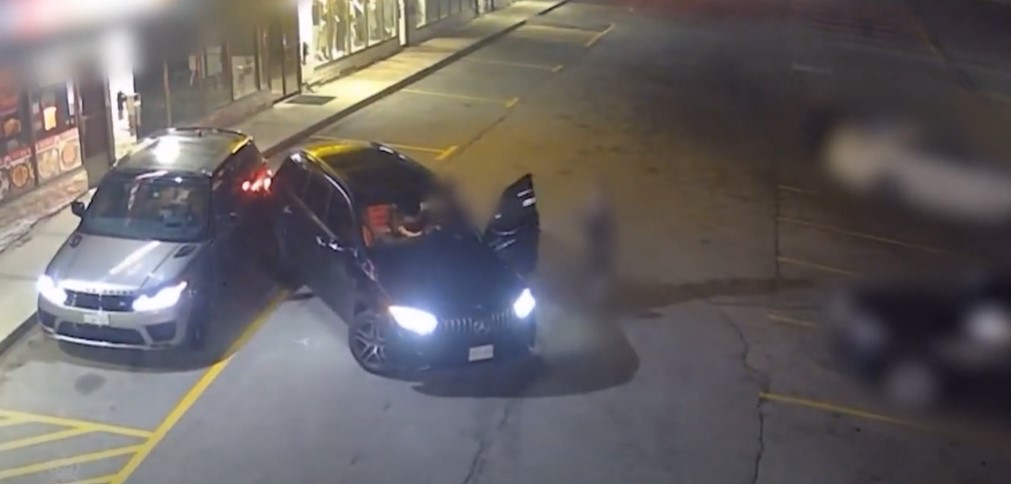Peterborough MP Dean Del Mastro to take stand in own defence Wednesday
Posted July 8, 2014 10:01 pm.
This article is more than 5 years old.
A counter-narrative seeking to undermine the credibility of a key witness began to emerge Tuesday in the election overspending trial of Dean Del Mastro as the MP’s lawyer mapped out how he plans to defend his client.
Del Mastro — an Independent MP who was once the Harper government’s point man on defending the Conservatives against allegations of voter fraud — has maintained his innocence throughout the trial, which is unfolding in the heart of his riding in Peterborough, Ont.
Del Mastro is expected to take the stand in his own defence Wednesday.
Ahead of his testimony, Del Mastro’s lawyer, Jeffrey Ayotte, began presenting his side of the case Tuesday, offering a glimpse of what the court can expect to hear.
Ayotte made it clear he hopes to erode the integrity of the prosecution’s key witness: Frank Hall, president of the now-defunct data consulting firm Holinshed Research, whose work for Del Mastro’s campaign is at the heart of the case.
“He had motivations that were not what he said here,” said Ayotte, referring to testimony the trial has already heard from Hall, who was the Crown’s first witness.
“He said his motivation was that he saw an error and wanted to correct it. Well, he saw the error, he says, in May of 2009 — and he seeks to correct it two years later.
“And he tells us … one of the things he did in the meantime was that he initiated a small claims court case against Mr. Del Mastro and that small claims court case was dismissed.”
The trial has heard that Hall’s company conducted voter identification and get-out-the-vote calls for Del Mastro’s campaign during the 2008 election.
The Crown alleges Del Mastro paid for those services from a personal account, thereby exceeding a limit on personal contributions for the election campaign.
The Crown has also alleged Del Mastro tried to cover up the overspending by using backdated invoices to make it appear Holinshed had only charged a fraction of the overall cost during the election period.
But Hall wasn’t being entirely forthright when he flagged irregularities with Del Mastro’s campaign returns, Ayotte suggested.
For instance, he said, Hall claimed in court that it was through Thomas Rittwage, who worked for another Conservative MP during the campaign, that he first learned Del Mastro hadn’t fully reported all of the Holinshed expenses.
Not so, alleged Ayotte, who called Rittwage as his first witness.
“Have you ever seen a copy, in any form, for the 2008 return for the Dean Del Mastro campaign in Peterborough?” Ayotte asked.
“Negative,” said Rittwage.
“Did you ever tell Frank Hall that you had seen that?” Ayotte continued.
“Negative,” Rittwage repeated.
Ayotte hinted at his plans to discredit Hall earlier in the day as well, when he questioned Alan Mathews, the Elections Canada official who led the investigation against his client.
Multiple opportunities to thoroughly test Hall’s integrity were missed, he suggested.
Mathews, the Crown’s last witness, said he and an assistant conducted an analysis of voter identification calls made by Holinshed. He didn’t bother to obtain records of phone calls between Hall and Del Mastro, nor did he obtain a warrant to search Hall’s laptop, Ayotte said.
Mathews, who took the lead on the case partway through the investigation, said he chose not to pursue the phone records. He also said a laptop warrant was unnecessary, since Hall had already consented to a limited search.
“So you didn’t apply for a warrant and you allowed Frank Hall to limit the parts of his laptop that you could search,” Ayotte asked. “In retrospect, do you think that was a mistake?”
“I would do it somewhat differently,” Mathews acknowledged. “I may have tried to persuade Frank and his counsel more vigorously to allow a wider search.”
Ayotte went on to suggest Mathews didn’t adequately scrutinize an alleged discrepancy between the number of hours of service Holinshed claimed it worked for Del Mastro’s campaign and the number of hours reflected on a company payroll database.
Mathews said he did think the hours of service reported by the company database seemed lower than they should have been, but he didn’t pursue the discrepancy with Holinshed’s president.
Del Mastro — who left the Conservative caucus in September 2013 — has pleaded not guilty to charges of overspending during the 2008 campaign, failing to report a personal contribution of $21,000 to his own campaign and knowingly submitting a falsified document.
“I’m very pleased at the way court is proceeding. I’ve waited a long time for this trial to come together,” he said outside court Tuesday.
“I think they’ll see that there’s a counter-narrative — a very important counter-narrative that’s supported by key witnesses.”
Richard McCarthy, Del Mastro’s official agent for the 2008 campaign, is being tried at the same time on three charges, including “incurring election expenses in an amount more than the election expenses limit.” He has also pleaded not guilty.
If found guilty, Del Mastro and McCarthy could each face fines of $1,000 and a year behind bars.
A conviction would not prevent Del Mastro from running from office again.










